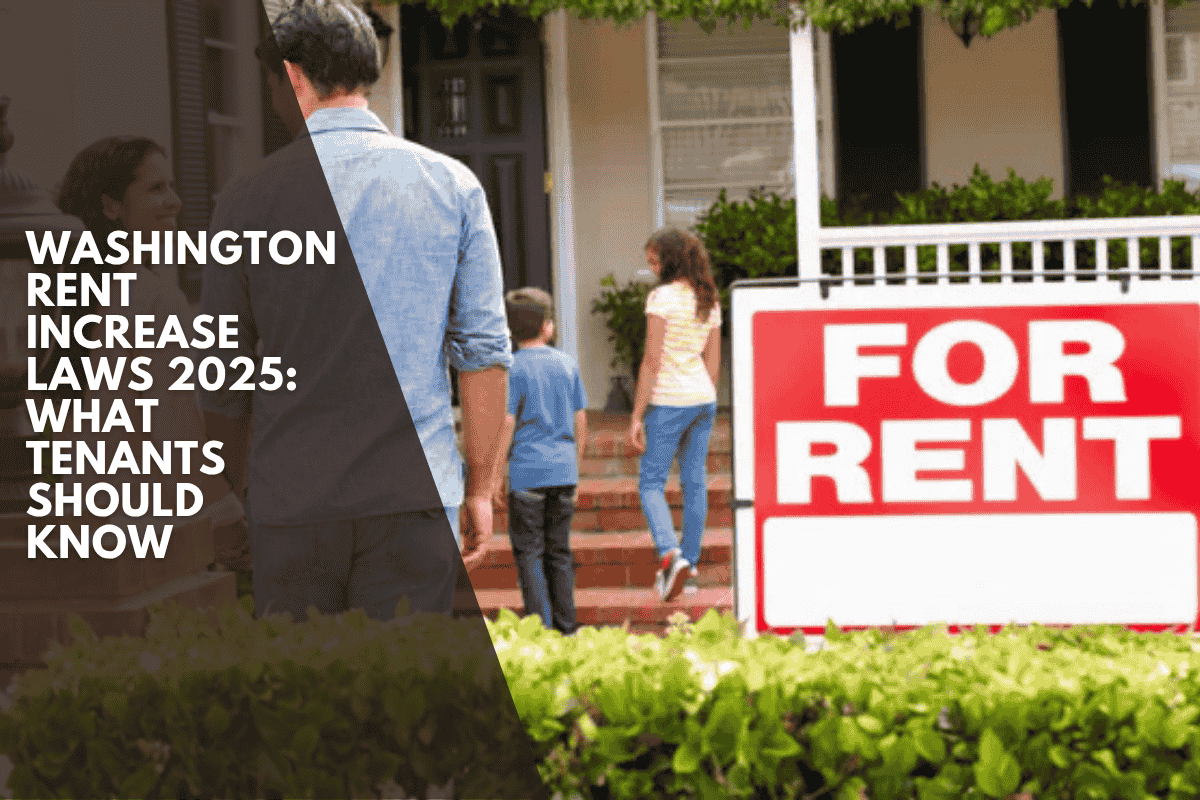In 2025, Washington state introduced significant protections for renters by capping annual rent hikes and strengthening notice requirements. These new laws aim to make renting more affordable and transparent for tenants, while providing clear guidelines for landlords. Here’s what you need to know about these critical updates.
Key Rent Increase Limits
The new laws cap annual rent increases for most tenants to no more than 7% plus inflation (measured by the Consumer Price Index), or 10%, whichever is lower, within any 12-month period. This ensures that tenants aren’t faced with unexpected or excessive rent hikes.
For manufactured or mobile homes, rent increases are capped at 5% per year, and this cap has no expiration date, offering long-term protection for renters in those units. Additionally, tenants are protected during the first 12 months of their tenancy. No rent increase is allowed during this period, which provides stability for new renters.
Notice Requirements
Landlords must provide tenants with at least 90 days’ written notice before any rent increase takes effect. This is an improvement from the previous 60-day notice requirement, giving tenants more time to adjust or make necessary arrangements. The law also requires landlords to use a specific rent increase notice form, as outlined in the law.
This form must be served in the same manner as eviction notices, either by personal service or posting and mailing with an affidavit. This ensures that tenants are properly informed and have a clear record of the notice.
Exemptions to the Rent Cap
While most tenants in Washington are protected by these new rent increase caps, there are some exemptions. New buildings that are less than 12 years old from their first certificate of occupancy are not subject to the rent increase caps.
Additionally, owner-occupied small properties such as duplexes, triplexes, and fourplexes, where the owner lives in one of the units and the property is not owned by a corporation or real estate investment trust (REIT), are also exempt from the cap.
Public housing properties owned by nonprofit organizations or public housing authorities with regulated rents are also exempt, as are certain affordable housing units participating in the federal Low-Income Housing Tax Credit (LIHTC) program.
Lease Type Parity
Landlords can no longer charge a higher rent for month-to-month leases compared to fixed-term leases for the same unit. The difference in rent for the two lease types cannot exceed 5%, ensuring fairness in pricing for tenants who choose flexible leasing options.
Enforcement and Tenant Remedies
If a landlord raises the rent above the legal cap, tenants have the right to send a written demand requesting the reduction of the increase. If the issue is not resolved, tenants can terminate the lease with 20 days’ notice or pursue legal action.
The Washington State Attorney General has the authority to investigate violations of the rent increase laws and may impose civil penalties of up to $7,500 per violation. Additionally, the Department of Commerce will run a Landlord Resource Center to provide guidance and support to landlords, helping them comply with the new rules and ensuring tenant protections are upheld.
Table
| Rule/Requirement | 2025 Law |
|---|---|
| Max Annual Rent Increase | 7% + CPI or 10% (whichever is lower) |
| Manufactured Home Rent Cap | 5% |
| Rent Increase in First 12 Months | Not allowed |
| Minimum Notice for Rent Increase | 90 days |
| Notice Form & Delivery | Statutory form, certified/personal service |
| Exemptions | New buildings (<12 years), owner-occupied small units, regulated affordable housing |
| Lease Type Rent Difference | Max 5% |
| Enforcement | Tenant demand, AG action, civil penalties |
Washington’s new 2025 rent increase laws offer strong protections for most tenants, with clear limits on how much rent can be increased annually and requirements for proper notice. If you’re a tenant in Washington, be aware of your rights, understand the exceptions, and act quickly if you receive a notice for an increase above the legal limit. With these protections in place, renters can feel more secure in their housing arrangements.
Sources
[1] https://www.commerce.wa.gov/commerce-announces-10-rent-cap-for-the-rest-of-2025/
[2] https://www.rhawa.org/blog/major-law-changes-what-providers-need-to-know
[3] https://www.axios.com/local/seattle/2025/05/07/washington-rent-hike-limit
[4] https://www.multifamilydive.com/news/rent-control-Washington-legislation/747994/
[5] https://www.opb.org/article/2025/05/07/washington-rent-cap-signed-into-law/











